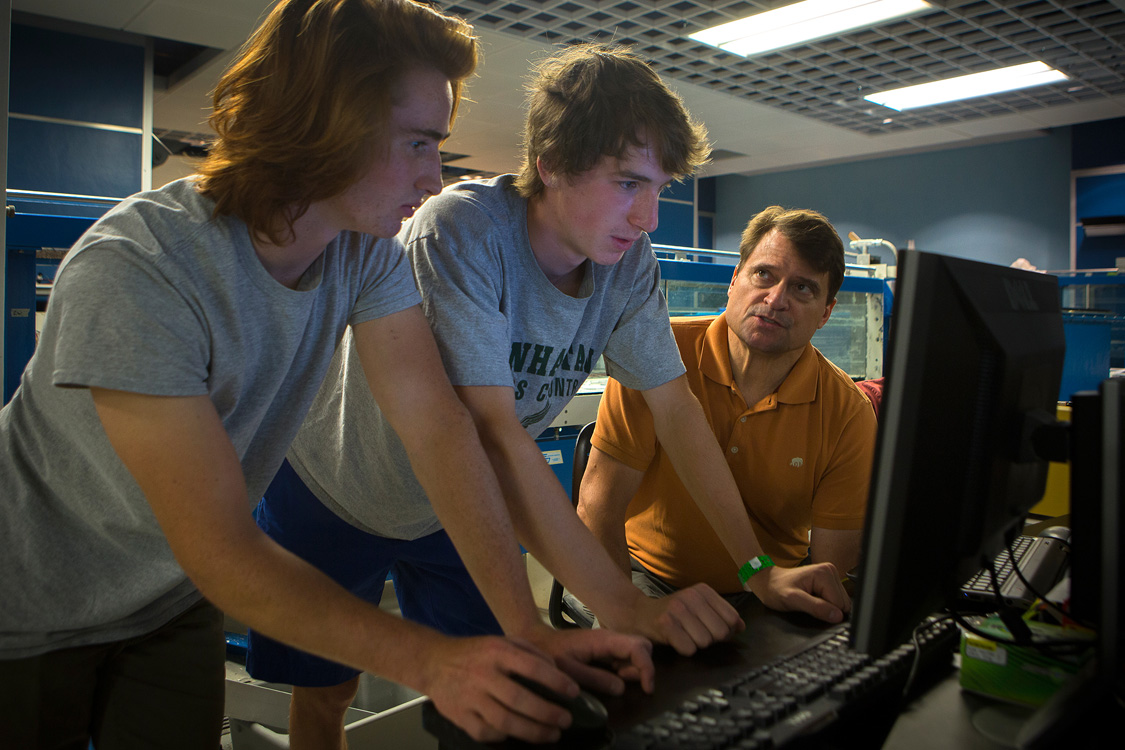
Region’s Key Resources Offer Dividends for Entrepreneurs
In the first post of this series, we discussed several factors that have made it easier for startups to access investors and customers far from their geographic location: improving communications technology, the proliferation of trade shows, and an increasingly globalized marketplace. We also examined why Venture Capitalists are increasingly willing to invest in great teams located anywhere in the world.
Despite increasing connectivity, geographic location remains critical for entrepreneurs when it comes to key business resources, says Brad Treat, Entrepreneur in Residence at Rev: Ithaca Startup Works and mentor with the Southern Tier Startup Alliance.
A key resource could mean several things, says Treat, be it infrastructure, physical assets, an abundance of local talent, or simply a high quality of life. The key resources that led to Silicon Valley’s startup boom were proximity to software engineers graduating from top technology programs and a slew of companies manufacturing computer chips.
So, what are the key resources that Ithaca and the Southern Tier of New York state have to offer?
The region’s most important key resource is its high number of top-notch research institutions, including Cornell University, Ithaca College, University of Binghamton, the SUNY system, University of Rochester, Rochester Institute of Technology, and Syracuse University. The upstate region also boasts several important educational services to help residents develop new professional skills, like Tompkins-Cortland Community College and BOCES. Indeed, the Southern Tier has the highest number of STEM Graduate students per capita in New York State, and the region’s universities have the highest R&D expenditures per capita in New York—$1.6 billion in 2015, compared to New York City’s $340 million.
The advantage of being locating near strong schools is threefold, says Treat.
First, entrepreneurs can rent out facilities—often for free, or at a steep discount, if their team includes alumni. For science-and technology-based companies, this allows affordable access to specialized, state-of-the-art equipment. For example, Hillside Hydro (pictured above, with mentor Brian Bauer, at the Cornell University DeFrees Hydraulics Lab)—a participant in Rev’s 2016 summer Hardware Accelerator program that makes portable, steam-driven generators—benefited from access to Rev’s 3D printers. According to the company’s founders, Jasper White and Hunter Hartshorne, the printers allowed them to develop and test new prototypes with much greater efficiency than using a mail-order printing service.
Second, being located near universities allows entrepreneurs to establish relationships with researchers and professors for mentorship and advice, or to offer them positions on their boards. For example, GiveGab—a social platform founded in Ithaca in 2011 that helps non-profits connect with donors and supporters—benefits from access to unique board members, like former Cornell President Hunter Rawlings. Receiving direction from someone with Rawlings’ leadership experience is a significant asset for a young company, notes Treat.
In addition to its use of Rev’s 3D printers, Hillside Hydro also profited from the mentorship found at Rev and in the broader Ithaca community. In connecting with people like Bauer, the Program Director for clean energy programs with Cornell’s Center for Regional Economic Advancement, White and Hartshorne have gained access to valuable facilities, such as the DeFrees lab.
Third, startups have a large pool of strong job applicants from which to hire, many of whom are seeking entry-level positions with unique, growing companies; this includes not just engineers, but talented, smart graduates across all disciplines. The presence of universities in the region also allows entrepreneurs to tap into a vast alumni network. There are many alums across Upstate and the Southern Tier working in investing, which can be an asset when seeking to schedule pitch meetings.
But an ideal location for a startup involves more than access to facilities and talent: Ithaca offers a quality of life dividend that can help attract and maintain key employees. In fact, Ithaca, NY was highlighted in a recent article in Bloomberg Businessweek for being one of the towns in the United States most likely to emerge as a technology hub in the coming years. The factors driving Ithaca’s strong showing? Low cost of living in comparison to other cities, housing availability, good public schools, low crime statistics, little congestion, and proximity to universities and other technology companies.
“The quality of life dividend is something that employers are thinking more and more about,” says Treat. “The way I thought about picking where to live, was what were the things I could control, versus the things I couldn’t. I couldn’t control whether there’s traffic and crime, or proximity to universities, which Ithaca is great for.”
Meanwhile, the winter weather, sometimes ascribed as one of Upstate New York’s negative qualities, can be tamed, notes Treat.
“The way you impact weather is a full-drive snow plow and an L.L. Bean catalog, he says.
“There’s also something to life about the changing of the seasons,” he adds. “When I had the luxury of choosing where I wanted to live, this is where I came.”
Finally, in Ithaca, there’s the advantage of being connected to a thriving startup community of innovative thinkers, supported by strong programs and facilities to propel the city’s growing entrepreneurial success. Locally there are spaces like Rev to support entrepreneurs, and regionally there is a growing entrepreneurial ecosystem for startups to connect for support and partnerships.
Want to learn more about the resources available to startups in our region? Reach out to us at [email protected] to connect to an entrepreneur in residence, or attend one of our open networking events. Sign up for our newsletter to stay up to date with what’s happening at Rev and in the community.
